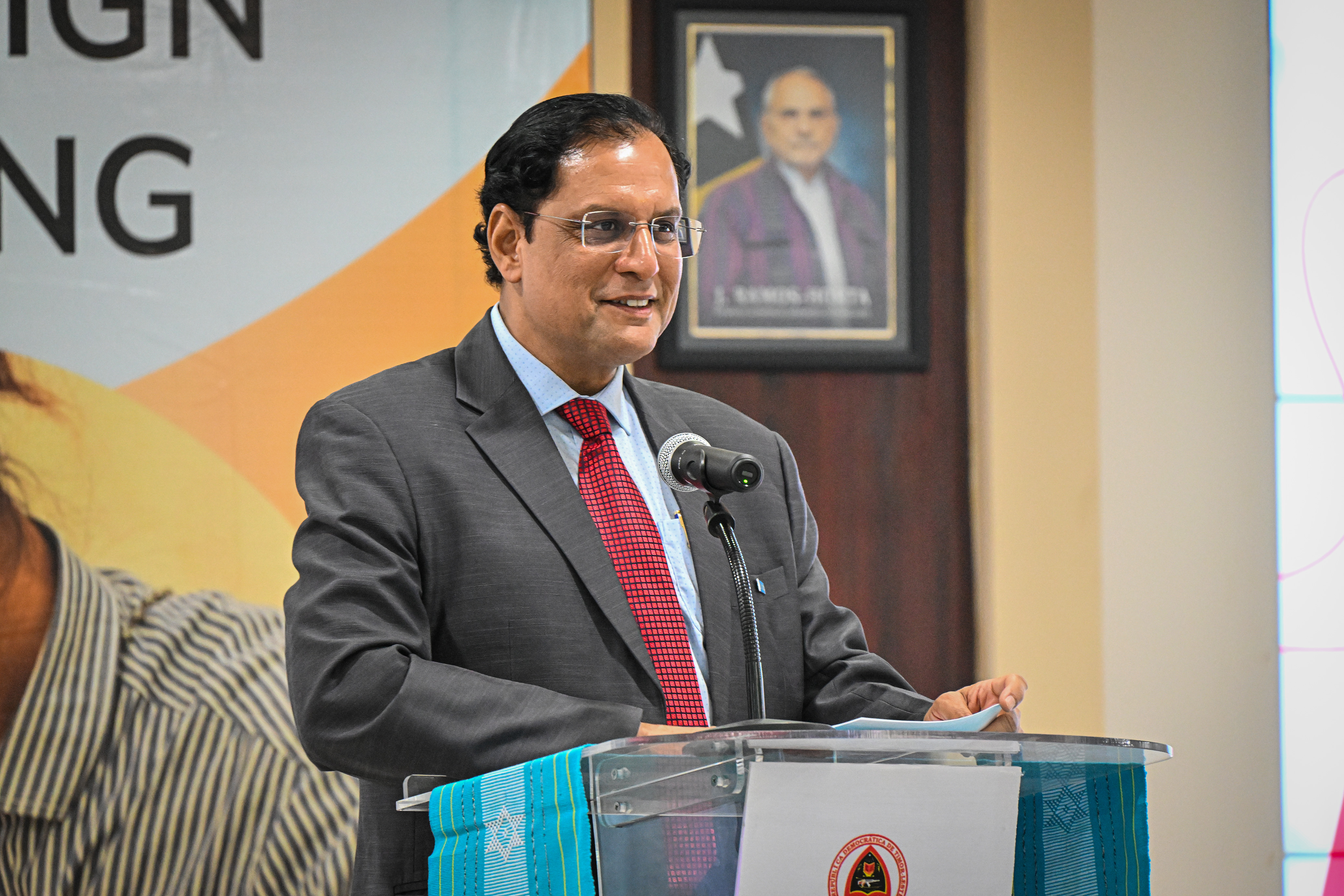 Dr. Arvind Mathur, WHO Representative to Timor-Leste. WHO Photo/Cirilo Danis
Dr. Arvind Mathur, WHO Representative to Timor-Leste. WHO Photo/Cirilo Danis
Timor-Leste has launched a national breastfeeding promotion campaign to make breastfeeding an everyday priority across all sectors. The campaign, launched on 17 April by President of Timor-Leste Dr. José Ramos-Horta, aims to improve the breastfeeding rates in the island nation. Consider this: More than half of the newborns don’t receive breastfeeding within the first hour of delivery, and nearly 36% of Timorese children between 0-5 months are not exclusively breastfed, according to the Timor-Leste Food and Nutrition Survey 2020. The Ministry of Health, with support from partners like the World Health Organization; United Nations Children’s Fund (UNICEF) and Alola Foundation hopes to change these statistics into a positive curve. We spoke to WHO Representative to Timor-Leste, Dr. Arvind Mathur, to know more about the campaign. Excerpts:
What prompted the launch of the national breastfeeding promotion campaign?
Dr. Mathur: The country statistics on breastfeeding was definitely a trigger. While deliberating on these statistics, the WHO, Ministry of Health, and other partners began thinking about ways to promote breastfeeding throughout the year, and not just during the annual World Breastfeeding Week in August. That’s when the thought about a national breastfeeding promotion campaign began to take shape.
This campaign aims to adopt a system strengthening strategy, focusing on the WHO’s health system building blocks. Please explain:
Dr. Mathur: The WHO uses an analytical framework to describe health systems with the help of six core components or the building blocks- leadership and governance, service delivery, health system financing, health workforce, access to essential supplies/services and health information systems. The campaign aims to strengthen each of these blocks from the perspective of breastfeeding. For example, under the health information systems’ block, the campaign’s focus is to strengthen reporting of data on breastfeeding and review performance on indicators like early initiation of breastfeeding. Similarly, under the health workforce block, the campaign focuses on building capacities so that all healthcare workers have required knowledge on Maternal, Infant, and Young Child Nutrition (MIYCN) and are re-sensitized to promote breastfeeding at all levels. WHO Timor-Leste along with the MoH and partners have drafted a detailed plan covering all these aspects.
 Launch of the National Breastfeeding Promotion Campaign on 17 April 2023 in Dili. WHO Photo/Cirilo Danis
Launch of the National Breastfeeding Promotion Campaign on 17 April 2023 in Dili. WHO Photo/Cirilo Danis
The Government of Timor -Leste has recently promulgated the National Code for regulating marketing of breastmilk-substitutes. What are the next steps that the campaign aims to drive?
Dr. Mathur: With the recent adoption of the national breastmilk substitutes (BMS) Code for Timor-Leste, we are now looking at the next step of building awareness on the principles and objectives of the national BMS Code, as well as initiate monitoring on implementation of the Code. Further the campaign also aims to intensify the advocacy on introduction of paid maternity leaves for six months across sectors, ensuring dedicated breastfeeding spaces in all places of work, integration of nutrition in pre-service curriculum for medical and nursing students among others.
What should be the ultimate aim of such a campaign?
Dr. Mathur: Our primary objective is to significantly increase awareness of the importance of breastfeeding by multiple folds. Every pregnant woman or a new mother must know about the benefits of colostrum (the first milk produced by the mother) feeding and every woman must know about the importance of exclusive breastfeeding. Women and families must demand initiation of breastfeeding at healthcare facilities within the first hour of childbirth, individuals and institutions must extend practical support to mothers to continue exclusive breastfeeding and communities must demand breastfeeding spaces at workplaces. With the help of the campaign, we want to reinforce the fact that the onus of breastfeeding lies not only with the woman but with all the others who are a part of her life- be it her husband, in-laws, parents, colleagues, or employers. And more importantly, we want these conversations to be mainstreamed across all sectors.
